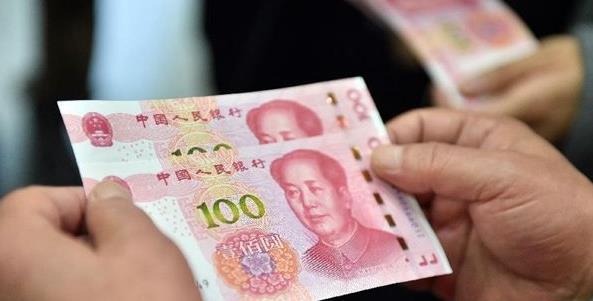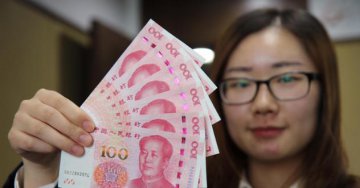
It's possible for the Chinese yuan to depreciate by another 10 percent against the dollar if the United States continues to raise tariffs on China imports, independent economist Andy Xie told CNBC on Friday.
A "significant depreciation" of 10 percent is possible if the U.S. follows through with its threat to raise import duties on Chinese goods to 25 percent at the end of this year, said Xie, who was formerly with Morgan Stanley.
"The currency fluctuates reflecting the economic challenges, so when you have tariffs rising on you, the currency adjustment is inevitable," Xie said.
The trade conflict between the world's two largest economies escalated this week when the United States imposed 10 percent tariffs on another $200 billion worth of Chinese imports on Sept. 24, with the duties set to rise to 25 percent on January 1, 2019.
President Donald Trump has frequently cited China's $375 billion trade surplus with the U.S. as evidence of unfair trade practices, and is trying to use tariffs to narrow the trade gap.
A further 10 percent depreciation in the yuan would fly in the face of recent Chinese efforts to stabilize its currency.
In late August, China's central bank signaled that authorities have no intention of using the yuan as a weapon in the trade war.
A Chinese leader said earlier this month that it was "simply not true" that the recent slide of the yuan against the U.S. dollar was an intentional policy decision from Beijing. He said that continued weakness in the yuan will do more harm than good for his country.
"China will never go down the path of stimulating exports by devaluing its currency, because that will not generate much profits and benefits to China," he said at a World Economic Forum gathering in Tianjin.
The "devaluation pressures" on the yuan exist, said Michael Taylor, managing director and chief credit officer for Asia Pacific at Moody's Investors Service. However, he stressed that Chinese authorities are well able to withstand them.
"We're not really expecting to see significant currency devaluation," he told CNBC's "Squawk Box" on Friday.
"Our view is that there is a fairly strong commitment to maintaining a stable renminbi," Taylor added, using another name for the Chinese currency.
He cited capital controls and other policy tools that China can use to stem currency weakness.
Xie, however, said that China needs to prevent exporters from moving out of the country to avoid the tariffs.
"You have to let exporters make money," he added. "If they lose money they shut down. So the exchange rate has to reflect the new reality."
Xie added that China should also take other measures to encourage exporters to remain in the country, such as cutting taxes.
Source: CNBC




















Latest comments